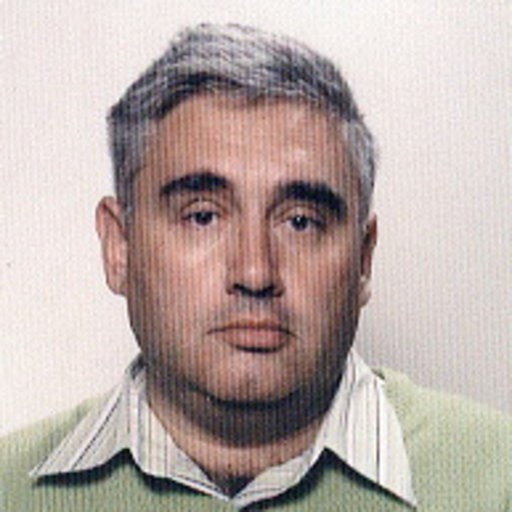 Dragan M. Djuric, MD, PhDInstitute of Medical Physiology "Richard Burian", Faculty of Medicine, University of Belgrade, Belgrade, SerbiaInterests: Experimental cardiovascular models; Cardiovascular research; Homocysteine and related vitamins; Gasotransmitters and oxidative stress; Nutraceuticals and cardiovascular health; Endothelial dysfunction
Dragan M. Djuric, MD, PhDInstitute of Medical Physiology "Richard Burian", Faculty of Medicine, University of Belgrade, Belgrade, SerbiaInterests: Experimental cardiovascular models; Cardiovascular research; Homocysteine and related vitamins; Gasotransmitters and oxidative stress; Nutraceuticals and cardiovascular health; Endothelial dysfunction Faculty of Medical Sciences, University of Kragujevac, Kragujevac, SerbiaInterests: Aging; Antioxidants; Cardiovascular protection; Cardiovascular research; Exercise; Diabetes; Hypertension; Hyperbaric physiology; Innovative therapy; Nutraceuticals and cardiovascular health; Oxidative stress and gasotransmitters; Rehabilitation
Faculty of Medical Sciences, University of Kragujevac, Kragujevac, SerbiaInterests: Aging; Antioxidants; Cardiovascular protection; Cardiovascular research; Exercise; Diabetes; Hypertension; Hyperbaric physiology; Innovative therapy; Nutraceuticals and cardiovascular health; Oxidative stress and gasotransmitters; Rehabilitation
Dear Colleagues,
Coronary artery disease (CAD) remains one of the world’s major health problems, accounting for 12.7% of global mortality. In spite of the fact that Rudolf Virchow had recognized the inflammatory nature of atherosclerotic plaques in the nineteenth century, CAD traditionally was considered as a “lipid storage disease”. However, despite an intensive campaign against cholesterol, triglycerides and other classical risk factors, CAD remains the main cause of death worldwide, with an increasing prevalence in developing countries.
That shows that other less known risk factors might be also involved in atherosclerotic CAD progression, metabolic worsening, cardiac instability and increased sensitivity to myocardial ischemic injury such as stress (according to Hans Selye’s theory of stress there are mental, somatic and environmental; acute and chronic stress) with neuro-endocrinological responses (neuro-cardiac axis, sympatho-adrenal system, renin-angiotensin-aldosterone system, hypothalamic and limbic networks, ACTH and glucocorticoids, sleep disruption, circadian clock disregulation etc.) and immunological responses (inflammatory cytokines, increased activity of haemopoietic progenitor cells in the bone marrow) as well.
In addition other factors that induce oxidative stress, inflammation, diet-induced “protein intoxication” (ie. hyperhomocysteinemia) etc. might also induce disturbance of cardiovascular homeostasis including cardiac dysfunction, endocardial and endothelial damage, through impaired nitric oxide (NO) production and loss of vasodilatory and antithrombotic properties of the coronary endothelium, and increase production of reactive oxygen species (and other free radicals), disturbances in vascular smooth muscle cell growth, proliferation, migration, angiogenesis, apoptosis, vascular tone, coagulation or fibrinolysis, and cardiovascular remodeling. The key pathophysiologic process in atherosclerosis is chronic inflammation, which participate in all atherogenesis steps: from foam cell accumulation to fatty streak organization and fibrous plaque formation, until acute plaque fissuring, rupture, and thrombosis.
These main roles of inflammation and the immune system were recognized in plaque formation and destabilization. A higher CRP level seems to correlate with a different stages of CAD, and similar results were obtained with other inflammatory markers, pro-inflammatory and anti-inflammatory cytokines. In addition low-grade chronic inflammation correlates with higher incidence of several non-cardiac diseases, including chronic depression that is considered now as a risk factor for poor prognosis among patients with myocardial infarction.
In this Special Issue, we invite original research as well as review articles discussing the role of stress and inflammation in coronary artery disease, to further clarify less investigated factors for poor prognosis among these patients.
Prof. Dr. Dragan M. Djuric and Prof. Dr. Vladimir Jakovljevic
Guest Editors
Manuscripts should be submitted via our online editorial system at https://imr.propub.com by registering and logging in to this website. Once you are registered, click here to start your submission. Manuscripts can be submitted now or up until the deadline. All papers will go through peer-review process. Accepted papers will be published in the journal (as soon as accepted) and meanwhile listed together on the special issue website. Research articles, reviews as well as short communications are preferred. For planned papers, a title and short abstract (about 100 words) can be sent to the Editorial Office to announce on this website.
Submitted manuscripts should not have been published previously, nor be under consideration for publication elsewhere (except conference proceedings papers). All manuscripts will be thoroughly refereed through a double-blind peer-review process. Please visit the Instruction for Authors page before submitting a manuscript. The Article Processing Charge (APC) in this open access journal is 2200 USD. Submitted manuscripts should be well formatted in good English.
- Open Access ReviewRole of the Stress- and Inflammation-Induced Cytokine GDF-15 in Cardiovascular Diseases: From Basic Research to Clinical RelevanceAnja Schwarz, Ralf Kinscherf, Gabriel A. BonaterraRev. Cardiovasc. Med. 2023, 24(3), 81; https://doi.org/10.31083/j.rcm2403081(This article belongs to the Special Issue Stress and Inflammation in Coronary Artery Disease)158Downloads319Views
- Open Access ReviewAnti-Inflammatory Therapy in Coronary Artery Disease: Where Do We Stand?Jelena Rakocevic, Milan Dobric, Milica Labudovic Borovic, Katarina Milutinovic, ... Miloje TomasevicRev. Cardiovasc. Med. 2023, 24(1), 10; https://doi.org/10.31083/j.rcm2401010(This article belongs to the Special Issue Stress and Inflammation in Coronary Artery Disease)158Downloads1Citations448Views
- Open Access Original ResearchComprehensive Analysis of Differentially Expressed lncRNAs in the Perivascular Adipose Tissue of Patients with Coronary Heart DiseaseXianwei Xie, Sunying Wang, Jingyi Rao, Jing Xue, ... Yansong GuoRev. Cardiovasc. Med. 2022, 23(10), 341; https://doi.org/10.31083/j.rcm2310341(This article belongs to the Special Issue Stress and Inflammation in Coronary Artery Disease)58Downloads184Views
- Open Access Original ResearchA prospective, randomized, double-blind, placebo-controlled trial of polyphenols on the outcomes of inflammatory factors and oxidative stress in patients with type 2 diabetes mellitusMilkica Grabež, Ranko Škrbić, Miloš P Stojiljković, Vesna Vučić, ... Nađa VasiljevićRev. Cardiovasc. Med. 2022, 23(2), 57; https://doi.org/10.31083/j.rcm2302057(This article belongs to the Special Issue Stress and Inflammation in Coronary Artery Disease)346Downloads22Citations1354Views
- Open Access Systematic ReviewEffect of stress management training in cardiac rehabilitation among coronary artery disease: a systematic review and meta-analysisYan Shi, Jing LanRev. Cardiovasc. Med. 2021, 22(4), 1491–1501; https://doi.org/10.31083/j.rcm2204153(This article belongs to the Special Issue Stress and Inflammation in Coronary Artery Disease)224Downloads3Citations620Views

